How To Stop Using Aluminum Foil, Plastic Wrap and Other Kitchen Disposables

The idea for this post was inspired by two things. The first was an image I saw on social media of someone pulling their dinner out of the oven with every single pan covered in aluminum foil. The second is that in my house, we have a roll of plastic wrap from 2010 that is coming to the end of its life. Josh brought it into our relationship and we use it so infrequently that it has lasted through three moves and a decade of cooking. We won’t be replacing it when it’s done. A low-waste lifestyle can seem daunting, especially when you are just beginning the journey.
There are many areas in our homes (and our lives) we can simplify, including our toys, our closets, and our celebrations, but a great place to start is the kitchen. Kitchen disposables are widely available (and widely used) for convenience, but they also have a great cost to our health, the environment, and our wallets. They just aren’t necessary. Most single-use disposables in the kitchen can easily be replaced with longer-lasting options. Ready to dive in?
Plastic Wrap
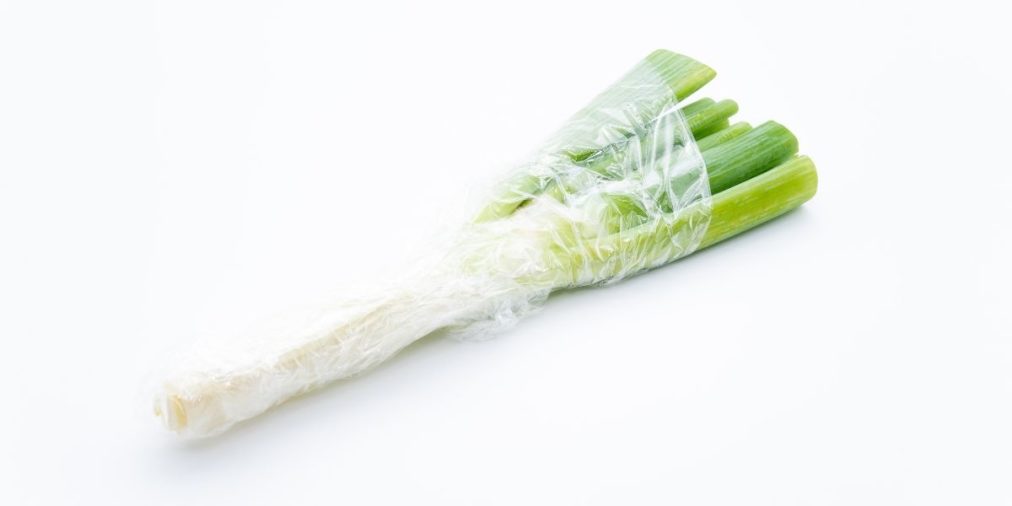
Why Ditch It?
If you’ve been following my work for any length of time, you probably know how much I despise plastic and aim to eliminate it from my house as much as possible. Plastics threaten our endocrine systems and hormonal health, the environment, our oceans, and marine life.
In one US survey, 5.3 million Americans reported using at least 10 rolls of plastic wrap during a six month period in 2020. Another article noted that each year “Americans buy enough plastic film to shrink-wrap Texas.” Plastic wrap isn’t part of most curbside recycling programs, so it mainly goes into the garbage – and often wends its way into the oceans, where many marine animals mistake it for food.
Alternatives
I detail many alternatives to plastic wrap and packaging in 5 Ways to Store Food Without Plastic. What you choose depends on what you’re using plastic wrap for. If you’re using it to cover items (casseroles, half-cut veggies, etc.), beeswax wraps are a great option. If you’re using it to store leftovers or baked goods, glass or stainless steel containers are some of my faves.
aluminum foil
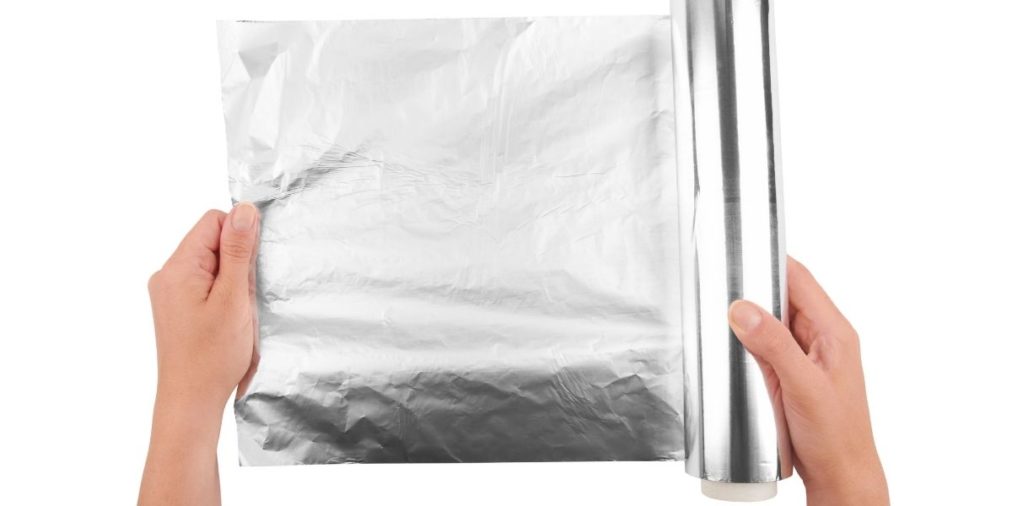
Why Ditch It?
Kitchen disposables like aluminum foil are either used for food storage or to line cookware and/or bakeware for easy cleanup when cooking. There is evidence that when cooking, aluminum can leach into the food – particularly when using acidic ingredients or animal products like meat and fish. Excess aluminum can have negative effects on the brain. Some researchers state that the amount of aluminum that may leach from aluminum foil to food doesn’t exceed safety levels, while others note that it may pose a risk to certain populations such as young children.
When you consider that aluminum foil isn’t the only way we may be exposed to it, you’ll also find it in food packaging, canned goods, cooking utensils, soil, and beauty care products like deodorant – my view is that extra aluminum from our foil could be what causes our health barrel to overflow.
Environmentally, there is some evidence that it takes more energy to produce aluminum foil.
Alternatives
For food storage, these plastic-free and aluminum-free options are great. If you’re using aluminum foil for cooking (lining baking sheets, making foil packets, etc.), I’d recommend trying unbleached parchment paper, which tends to be easier to re-use a few times.
plastic bags
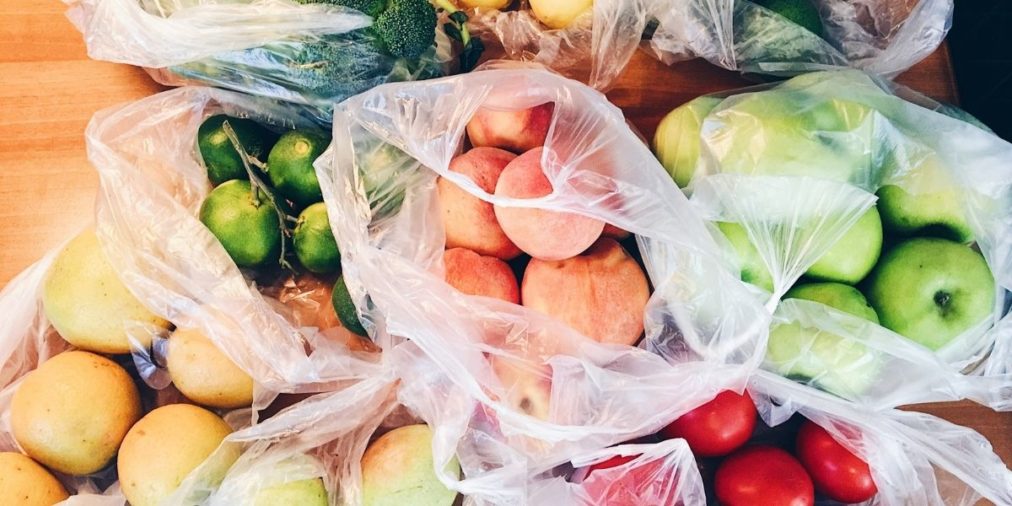
Why Ditch It?
Worldwide, we use 500 billion plastic bags annually. On average, each bag has a working life of about 15 minutes – but the overall impact of plastic bag production is much longer. Plastic remains in our environment for at least 100 years, and like plastic wrap, plastic bags end up in our oceans where they harm and kill marine life. As plastic degrades, it doesn’t disappear but typically breaks into minute pieces, or micro-plastics, which have their own set of problems you can read about here.
Alternatives
Instead of single-use plastic bags, get some reusable shopping bags to carry your groceries home. Instead of plastic baggies for food storage and snacks, opt for reusable snack and sandwich bags. Mesh produce bags are great when shopping for produce or bulk items.
paper towels
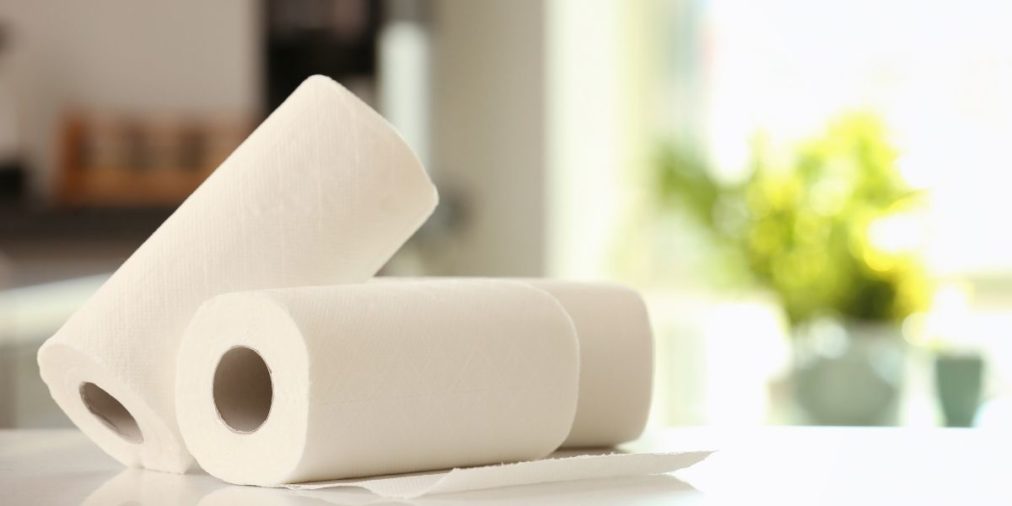
Why Ditch It?
Paper towels require trees and energy to make – and we only use them briefly to clean up spills or dry our hands. In a survey of paper towel use, 45.3 million Americans said they used at least 8 rolls of paper towels within a 30-day period. In some areas, paper towels can be composted while in others they simply go into the garbage.
Some paper towels are bleached bright white, or contain chlorine or formaldehyde. While our exposure to these chemicals through paper towels is small, all the little things add up.
Alternatives
I like to cut up old t-shirts, kitchen towels, bath towels, or sheets into different sizes and use them as paper towels or for home cleaning.
Disposable cutlery
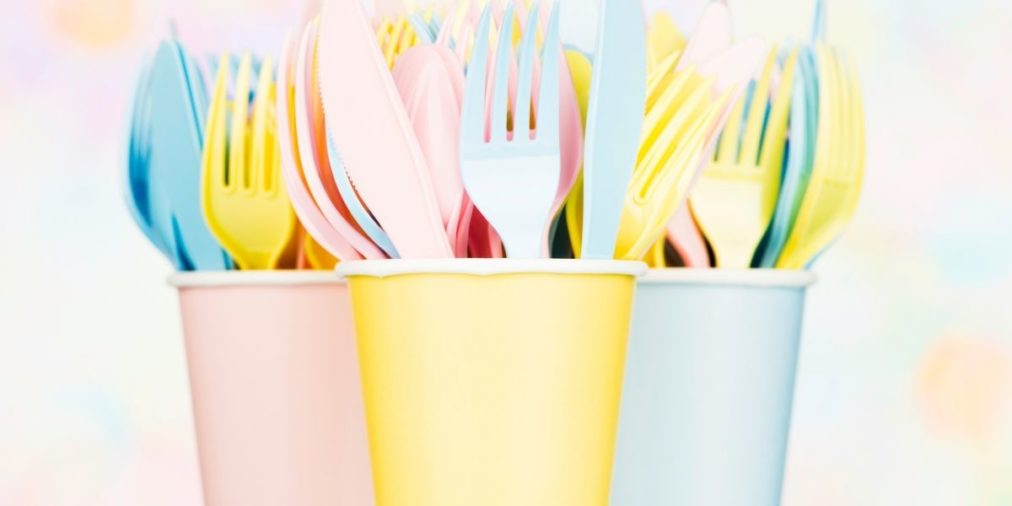
Why Ditch It?
About 40 billion plastic single-use utensils like spoons, knives, and forks are tossed every year. Many of these are made with polystyrene, a hard, tough plastic that cannot be recycled easily and can potentially induce inflammation. We typically use plastic cutlery once and throw it away. Or, if we receive cutlery with a takeout order and use our regular forks and knives, we may not use the disposable cutlery at all before tossing it.
Alternatives
If you’re eating at home, even if you’re having guests, use your regular cutlery and utensils. In the short term, there may be a little more cleanup, but in the long term, this choice will have a better impact on the environment that you and your loved ones live in.
If you are eating out or traveling, purchase a travel cutlery set so you can skip the plastic cutlery offered with your meal. If ordering takeout, note a request for ‘no plastic cutlery’ on the phone or online.
paper Napkins
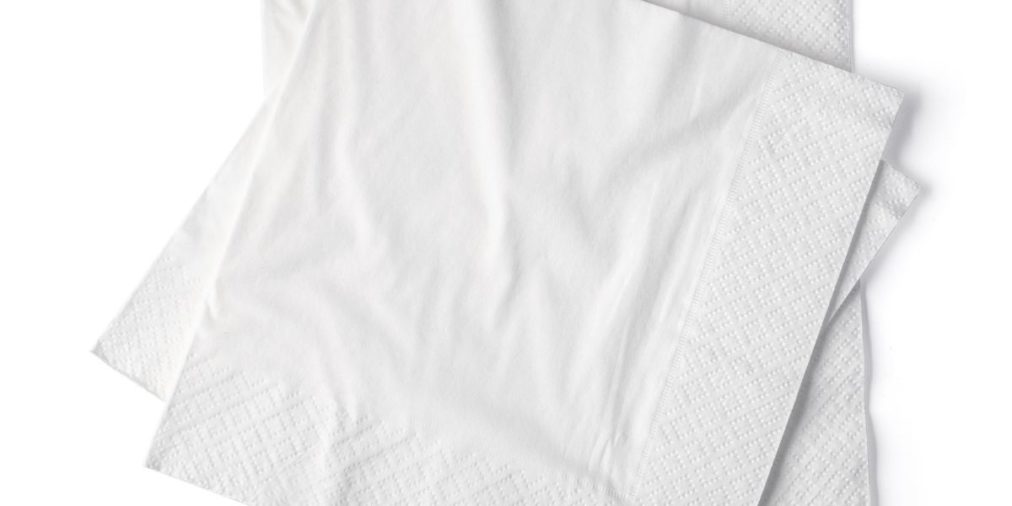
Why Ditch It?
Like paper towels, paper napkins are kitchen disposables that we use once and toss – sometimes multiple times a day. Even when you account for the environmental cost of washing and drying reusable napkins, as well as the impact of the cotton or linen they’re made of, reusable napkins still come out on top as the more environmentally friendly choice..
Alternatives
Choose cloth or linen napkins. You don’t need to wash them every day – we toss ours in the laundry about once a week. If you have the skills, sew your own!
plastic Straws
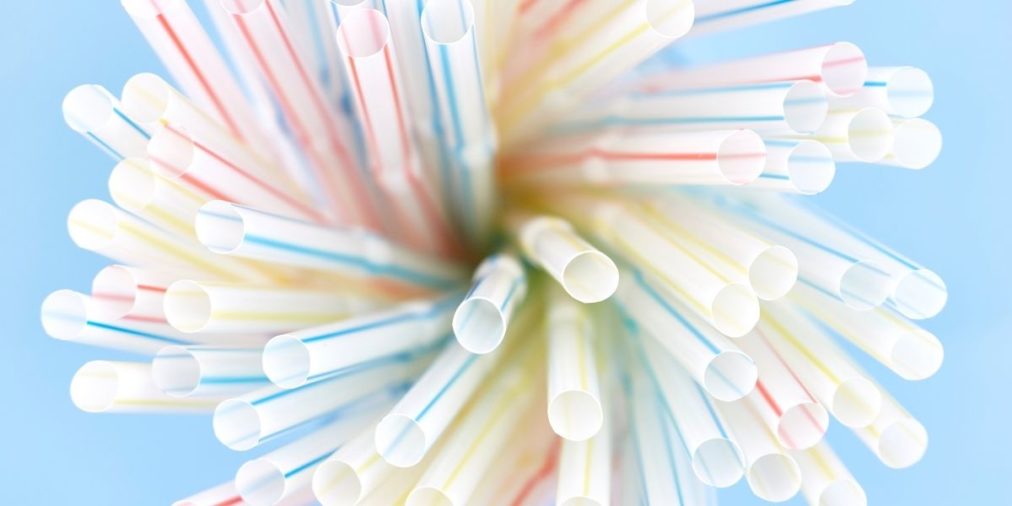
Why Ditch It?
Americans use 500 million single-use straws daily. Here in Canada, it’s 57 million. As with other plastic kitchen disposables I’ve mentioned so far, plastic straws end up in our oceans where they can harm wildlife. Many cities have already implemented straw bans, and here in Canada, single-use plastics (including straws and several other items) will fall under a national ban by the end of 2021.
Alternatives
Opt for glass or stainless steel straws (I personally prefer glass, so I can see if I’ve cleaned them thoroughly). If a single-use straw is necessary, try a paper biodegradable or compostable straw.
plastic water bottles
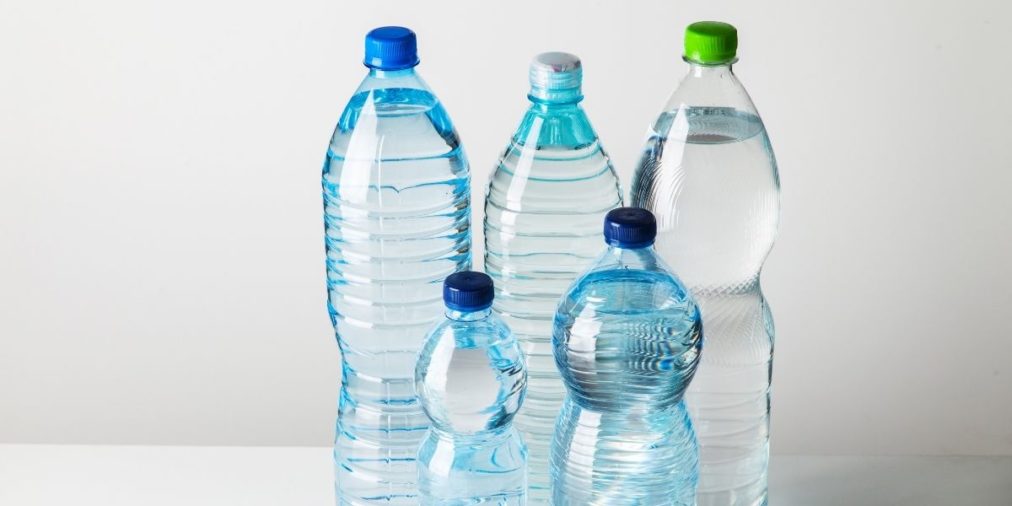
Why Ditch It?
One million water bottles are purchased around the world every single minute. Every minute! It’s almost unfathomable – if not for all of the images of plastic water bottles filling up our waterways. Aside from the environmental implications of water bottles in the environment, plastic water bottles contain bisphenol A (BPA). BPA a known disruptor of the endocrine system.
Alternatives
Purchase reusable water bottles made of glass or stainless steel when you’re on the go. If you’re at home, use a glass.
What About The Cost?
While there may be up-front costs with buying some reusable items, in the long run, it will save you money – as well as the time spent shopping for them.
Certain reusable items can be very low or no cost. For example, instead of using plastic for food storage you could save glass jars from nut butters, pickles, etc. and use those instead. For paperless paper towels, cut up old t-shirts. Lots of companies give away free reusable shopping bags, too.
Other items like glass straws, for example, may cost anywhere from $8 to $20 but they will last a long time and have great warranties – I’ve had many of mine for close to a decade.
For other no-cost options, check out your local Buy Nothing group (or equivalent ‘free stuff’ giveaway sites) online and see if you can nab some good free items.
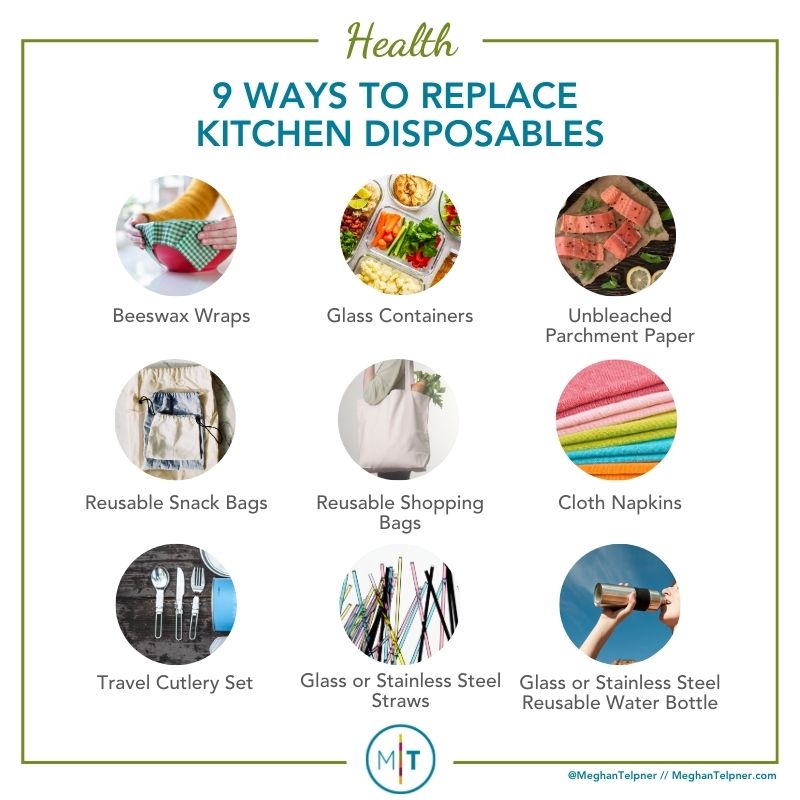
Free Resource Library
Enjoy more than 40 downloadable guides, recipes, and resources.















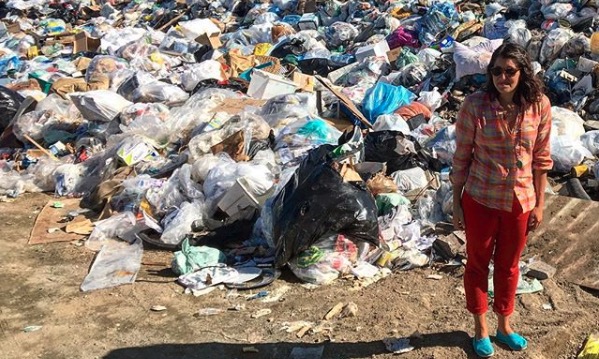

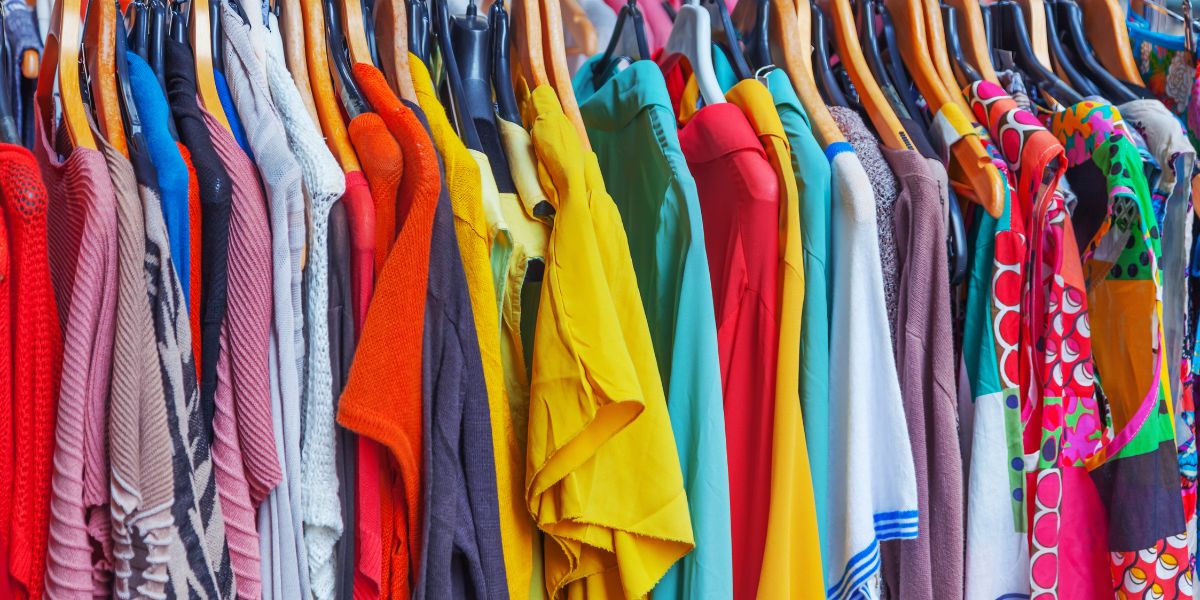
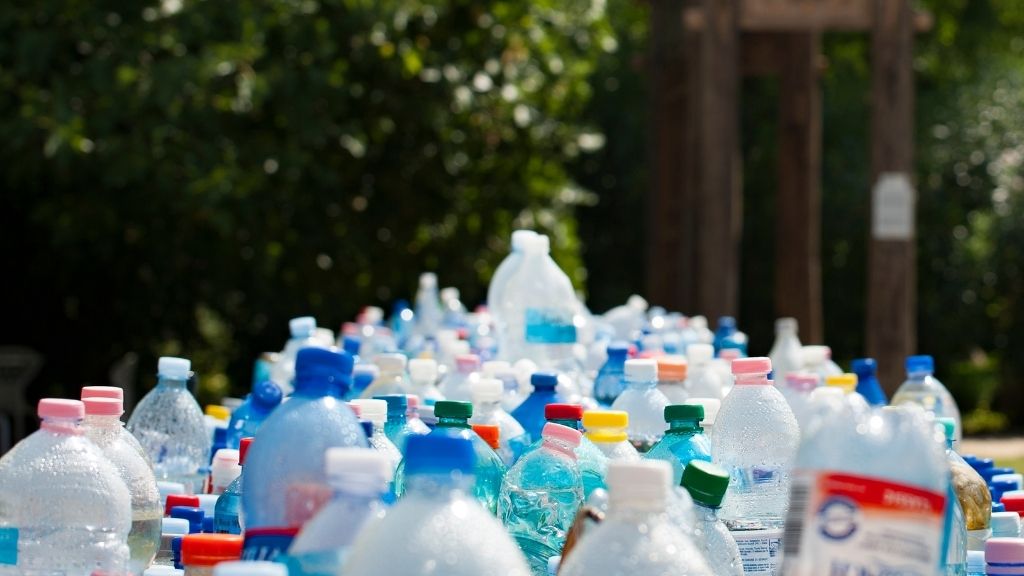
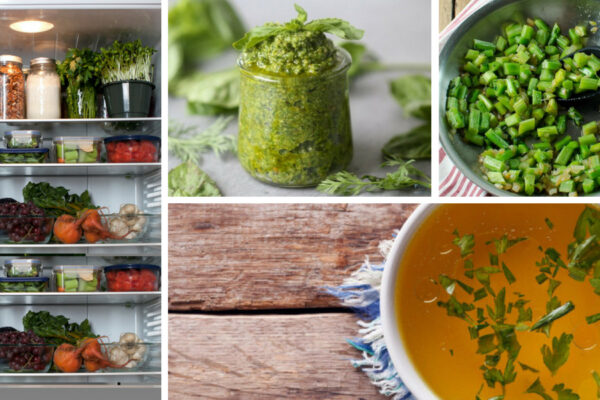

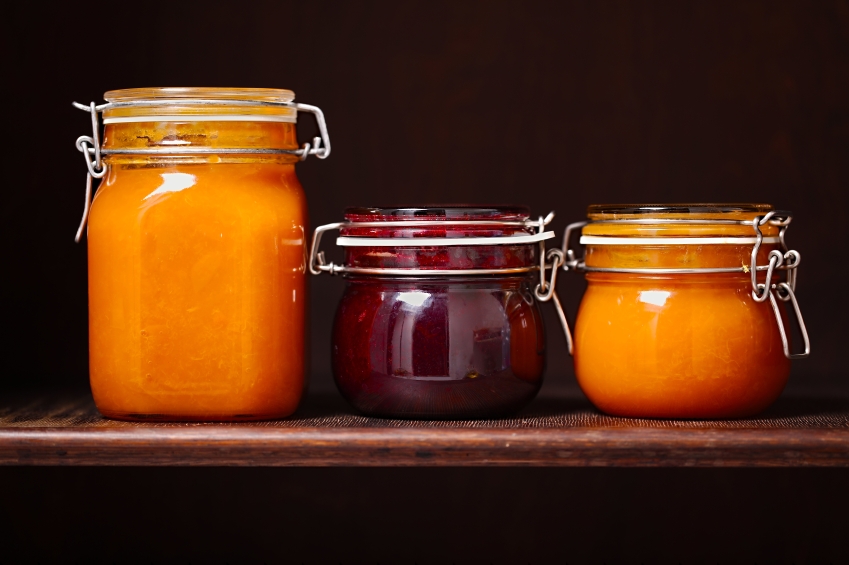
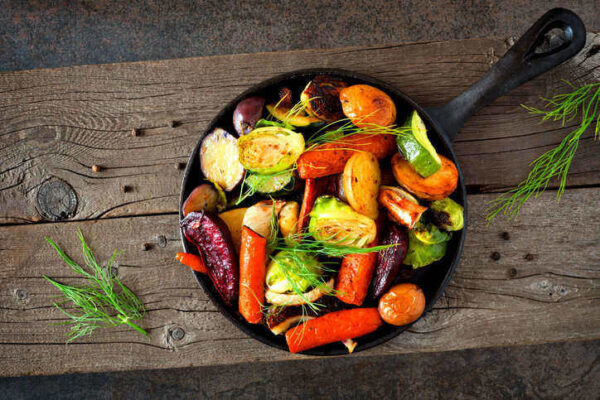
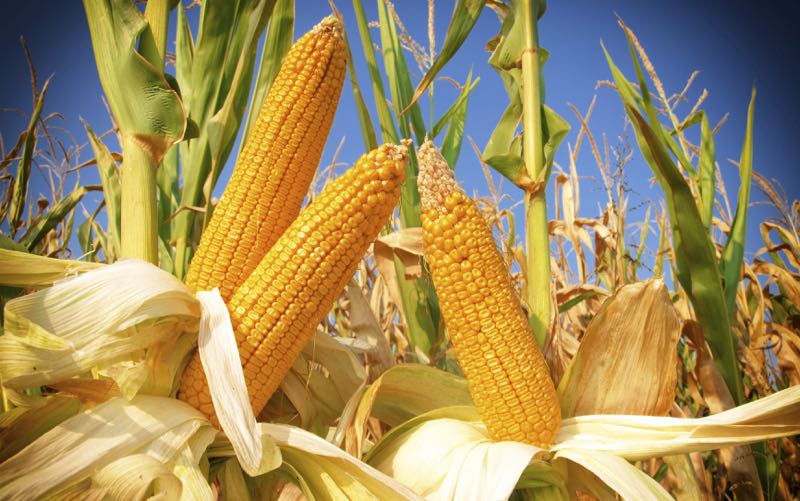
I really appreciate your information. I agree 100% with single use products. You mentioned glass and stainless steel straws. What are your thoughts on reusable silicone straws?
Just wondering how you feel about silicone bags and bakeware, etc.?
I was wondering about silicone as well–I was gifted silicone straws and a silpat matt. Great article. We just finished the roll of plastic wrap that has been around 10 years too–I’m trying really hard not to buy another one. Time for some beeswax wraps.
You are returning back to the 1950´s and earlier. The women in those for the most part were real homemakers. They shopped daily at the market place, some didn´t even have refrigerators. I used to see the ice man delier ice to the households. Moms went to market with cloth shopping bags similar to what many are returning today. All the kids used to collect glass bottles and we used to get paid 2 cents a bottle and with 25cents I used to put a gallon of gas to travel a bit further than my neighbor. Yes, we had cloth napkins.